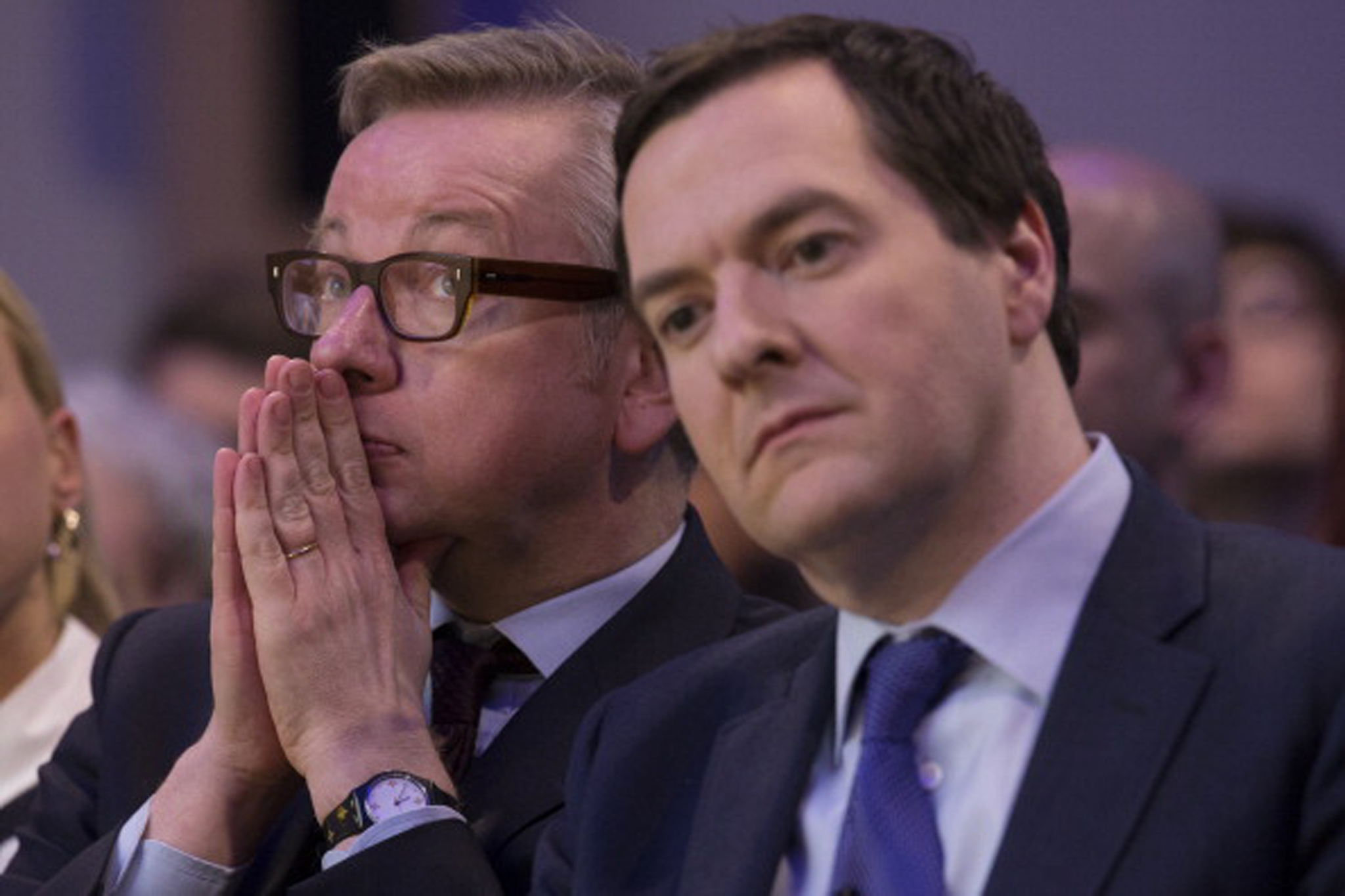Inside Westminster: If only Gove could get things done as easily as he makes enemies
The Education Secretary was not surprised by his deputy’s attack


“There will be consequences,” one prominent New Labour figure snapped when he heard the news that Baroness (Sally) Morgan, a former Blair aide, was to be dismissed as chair of Ofsted by Michael Gove, the Education Secretary. “If I had a list of 10 people not to mess with, Sally would be on it.”
Her former colleague was right: if Mr Gove judged that the Labour peer would go quietly, he was wrong. Instead, she went on BBC Radio 4’s Today programme to accuse Downing Street of ousting a series of “non-Conservatives” from public bodies.
Mr Gove’s department was quick to confirm The Independent’s story about Lady Morgan being denied a second term at England’s schools inspectorate. Gove’s aides hoped to clear the ground for his major policy speech on Monday, to kick off what was marked as “education week” on No 10’s forward planning “grid”, and was supposed to involve David Cameron and George Osborne. But the plan seemed to fizzle out as the Liberal Democrats seized on the row over Lady Morgan to highlight their differences with the Tories.
Mr Gove insists his decision was not party political, that he wants a hands-on chair to drive through reforms at Ofsted that Lady Morgan had agreed with Sir Michael Wilshaw, the Chief Inspector of Education. But he underestimated the reaction to sacking her. Both the Lib Dems and the Blairites saw it as marking the end of his support for “big tent politics” drawing in people from other parties.
Mr Gove has until now enjoyed surprisingly good relations with the Blair camp. The Education Secretary is a big admirer of the man he calls “the master”, knows the former Prime Minister’s memoirs inside out and is hungry to complete unfinished Blair reforms – notably on academy schools. In turn, some Blairites have a sneaking admiration for Mr Gove; they share his frustration with the educational establishment and believe he is sincere in his crusade to drive up standards in the classroom.
Yet Blairites also detect flaws. They think Mr Gove is too confrontational for his own good, that he would cross a road to pick a fight with a teacher. They believe he has not learnt one important lesson from the New Labour era: the need to win hearts and minds and take people with you to make reforms work – as, for example, Labour did in driving up performance in London schools. New Labour figures also detect a contradiction between Mr Gove’s laudable desire to “set schools free”, and his instinct to meddle in the content of their history lessons.
The lesson Mr Gove draws from the Blair handbook is that you have to get a move on with reform. Perhaps this explains his more tribal approach as next year’s election approaches, and his determination to install a new broom at Ofsted in case the Tories lose power.
Blairites think his haste to change the nameplate outside schools so they all become academies – as more than half the state-funded secondary schools now are – will not transform their performance overnight. They believe the Department for Education does not have the capacity to monitor so many schools when they leave the clutches of local authorities. So Labour backs the call by David Laws, the Lib Dem Schools minister, for Ofsted to get the power to inspect the groups or “chains” of academies which now account for half of all such schools.
This intervention by Mr Laws was seen as very significant by Conservative ministers – a sign that the Lib Dems are deadly serious about “differentiating” from their Coalition partner. Until now, Mr Laws has been seen as one of the most “proalition” ministers and enjoyed a good working relationship with Mr Gove.
The Education Secretary was not surprised by his deputy’s attack. At the very highest level of the Government, the Lib Dems forewarned the Tories they would go for Mr Gove because he is unpopular among the lost core voters they are trying to win back. The Lib Dems’ tip-off was, as they say in The Godfather: “It’s not personal, just business.” Except that the Lib Dem assault was personal.
Mr Gove is one of the most effective ministers in this Government. He is a rare breed among politicians: when he tells me he does not want to be Prime Minister because he believes he is not “in that league”, I believe him. But if he were told it was his duty to run, Mr Gove might just emerge as the “stop Boris Johnson” candidate in a Tory leadership race.
The Education Secretary is unruffled despite a roller-coaster week. The row over Lady Morgan and the Lib Dem attacks were frustrating, but he took comfort from being asked many more questions in media interviews about “real world” issues – his plans for tougher discipline; a longer school day and making state schools as good as private ones.
Gove allies hope that parents will get the message that the Tories are getting on with the serious business of running the country while the Lib Dems “play politics.” But there are risks for both coalition parties in too much squabbling so far from the election.
Mr Gove happens to be one of the most courteous people in politics. And yet, to paraphrase his criticism of Mr Clegg’s split personality on public sector reforms, there is a “Good Michael” and a “Wicked Michael”. The nice Mr Gove might achieve more of his reforms if he were not so nasty to the people he needs to implement them.

Join our commenting forum
Join thought-provoking conversations, follow other Independent readers and see their replies